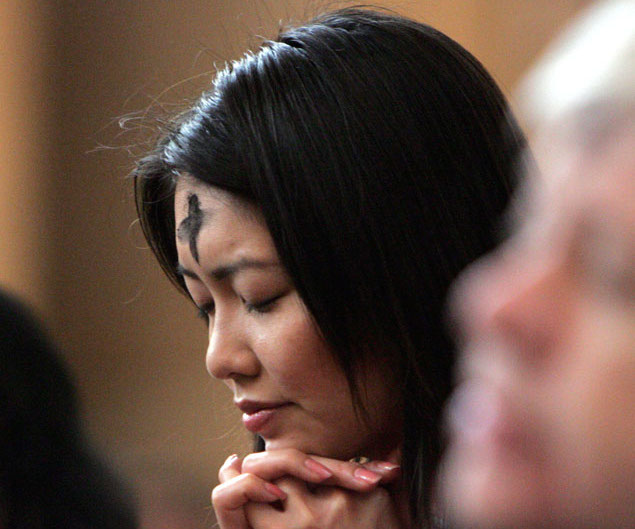Self-Knowledge • Fear & Insecurity
On a Sense of Sinfulness
Modern society often tells us that we should learn to feel good about ourselves. Low self-esteem is out. We should be celebrating our goodness, talents and potential. Enough of having to feel ashamed of who we are and what we do.
Religions couldn’t agree less. All of them carve out moments in the diary when they want us to take stock of all the bad stuff we’re likely to have done, all the unthinking evil and carelessness we’re responsible for – and then they ask us to say sorry. We should look back over our behaviour and do that most unfamiliar and pre-modern thing: atone; that is, apologise for what an idiot and low-key monster one has been over the past few months.
Every year, Christians around the world mark Ash Wednesday; a central moment of atonement. Believers go to a priest and get a cross drawn on their forehead made out of the ashes of palm trees. It’s a public symbol of one’s commitment to saying sorry for the bad stuff one has done, a sign that one has entered a period of reflection and apology. It’s a deeply charming and useful ritual, from which the more self-satisfied bits of the secular world could learn a lot.
Religions accept that all of us are bad: that we are tempted to deceive, steal, insult, egoistically ignore others and be unfaithful pretty much all the time. The question is not whether we experience shocking temptations or do bad things, but whether we are able once in a while to rise above our awful sides, acknowledge them and say sorry for them. A public invitation to atone is meant to encourage us to inch towards moral improvement. Ash Wednesday teaches us that the faults we have are inevitable facts about being human and we must therefore admit to them candidly and attempt to rectify them in the light of day. It’s as if religions know that feeling that you’re meant to be innocent and good all the time is not helpful if you’re trying to become a better person. It makes us paralysed with guilt over our failure to measure up to impossibly high standards of integrity. It just makes us hypocrites. Far better to be told that we’re all bad, all likely to be mean and thoughtless, and then asked to say sorry – rather than cling on to ideas of our original purity. Confessions of universal sinfulness, symbolised by a black cross on your forehead, turn out to be a far better starting point from which to take the first modest steps towards being an OK person.
Thinking one is great and kind all the time is simply not a good basis for actually being so. Whatever you think of religion, it understands this bit of our psyche pretty well.






























